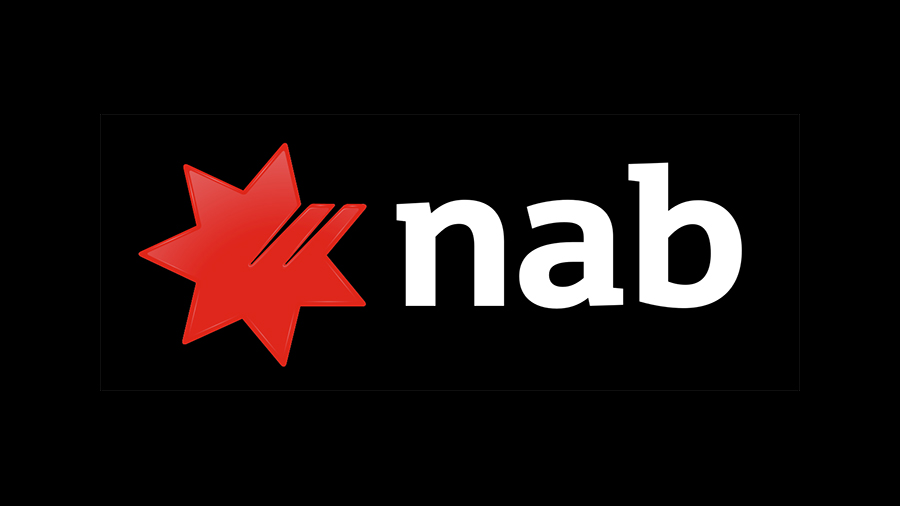17+ Anti money laundering nz banks information
Home » money laundering idea » 17+ Anti money laundering nz banks informationYour Anti money laundering nz banks images are available in this site. Anti money laundering nz banks are a topic that is being searched for and liked by netizens now. You can Find and Download the Anti money laundering nz banks files here. Get all free vectors.
If you’re looking for anti money laundering nz banks pictures information related to the anti money laundering nz banks topic, you have visit the ideal site. Our site always provides you with hints for downloading the maximum quality video and picture content, please kindly surf and find more enlightening video content and images that fit your interests.
Anti Money Laundering Nz Banks. Issuers of securities trustee companies futures dealers collective investment schemes brokers and financial advisers are supervised by the Financial Markets Authority and can access information at Financial Markets Authority website. New Zealands long awaited anti-money laundering laws are now in place almost four years after Parliament passed the Anti-Money Laundering and Countering Financing of Terrorism Act. As a bank we must comply with New Zealands AMLCFT law which helps protect our communities from criminal activity. All New Zealand banks have introduced enhanced customer identification requirements.

Under the law all banks in New Zealand are required to do more to verify a. IProov can help banks to prevent money-laundering and other financial crime. All New Zealand banks have introduced enhanced customer identification requirements. Also it is hard to deal with third-party introducers where the main beneficiaries wish to remain anonymous and it can be hard to balance KYC with customers right to privacy Jackson 2000. In practice this means that New Zealand firms must develop an AML program featuring the following measures and controls. For this reason banks must identify the risks by fulfilling their AML obligations and must take.
NZs anti-money laundering laws now in effect with banks expected to pry more into customer identity and account activity.
1st Jul 13 943am. Issuers of securities trustee companies futures dealers collective investment schemes brokers and financial advisers are supervised by the Financial Markets Authority and can access information at Financial Markets Authority website. Changes authorised by subpart 2 of Part 2 of the Legislation Act 2012 have been made in this official reprint. Note 4 at the end of this reprint provides a list of the amendments incorporated. Under the Act all financial institutions law firms and real estate agents in New Zealand are required to verify a customers identity and account activity. The Department of Internal Affairs supervises casinos non-deposit taking lenders money changers money remitters payroll remitters debt collectors factors financial leasors safe deposit box vaults non-bank credit card providers stored value card providers and cash transporters virtual asset service providers accountants lawyers conveyancers real estate agents high value dealers and any other reporting entities not supervised by the Reserve Bank.
 Source: nzbusinessexperts.co.nz
Source: nzbusinessexperts.co.nz
As a bank we must comply with New Zealands AMLCFT law which helps protect our communities from criminal activity. The Anti-Money Laundering and Countering Financing of Terrorism Act 2009 is designed to help detect and deter money laundering and terrorism financing. Issuers of securities trustee companies futures dealers collective investment schemes brokers and financial advisers are supervised by the Financial Markets Authority and can access information at Financial Markets Authority website. The Department of Internal Affairs supervises casinos non-deposit taking lenders money changers money remitters payroll remitters debt collectors factors financial leasors safe deposit box vaults non-bank credit card providers stored value card providers and cash transporters virtual asset service providers accountants lawyers conveyancers real estate agents high value dealers and any other reporting entities not supervised by the Reserve Bank. Financial institutions have had to comply with the AMLCFT Act since 2013 now other businesses will also need to comply including real estate agents and many lawyers and accountants.
 Source: stuff.co.nz
Source: stuff.co.nz
Note 4 at the end of this reprint provides a list of the amendments incorporated. In practice this means that New Zealand firms must develop an AML program featuring the following measures and controls. The Anti-Money Laundering and Counter Financing of Terrorism Act 2009 AMLCFT Act is designed to help detect and deter money laundering and terrorism financing. As a bank we must comply with New Zealands AMLCFT law which helps protect our communities from criminal activity. However banks need to take care of the implementation as there is no obvious end point to the information that would be useful to a bank manager in seeking to prevent money laundering in KYC.
 Source: stuff.co.nz
Source: stuff.co.nz
By doing so they help prevent criminal profits from becoming camouflaged and integrated into the financial system. Anti-money laundering is a way for banks and other financial institutions to detect suspicious activity. IProovs Genuine Presence Assurance technology uses face verification and authentication to enable banks to deliver security compliance with regulations and maximum completion rates while ensuring an effortless and reassuring user experience. Considering that banks mediate millions of financial transactions during the day banks are at great risk for financial crimes. Anti-Money Laundering and Countering Financing of Terrorism Act 2009.
 Source: content.harcourts.co.nz
Source: content.harcourts.co.nz
New Zealand has passed a law called the Anti-Money Laundering and Countering Financing of Terrorism Act 2009 we will call it the AMLCFT law. Financial institutions have had to comply with the AMLCFT Act since 2013 now other businesses will also need to comply including real estate agents and many lawyers and accountants. In practice this means that New Zealand firms must develop an AML program featuring the following measures and controls. The Department of Internal Affairs supervises casinos non-deposit taking lenders money changers money remitters payroll remitters debt collectors factors financial leasors safe deposit box vaults non-bank credit card providers stored value card providers and cash transporters virtual asset service providers accountants lawyers conveyancers real estate agents high value dealers and any other reporting entities not supervised by the Reserve Bank. However banks need to take care of the implementation as there is no obvious end point to the information that would be useful to a bank manager in seeking to prevent money laundering in KYC.
 Source: interest.co.nz
Source: interest.co.nz
Also it is hard to deal with third-party introducers where the main beneficiaries wish to remain anonymous and it can be hard to balance KYC with customers right to privacy Jackson 2000. As a bank we must comply with New Zealands AMLCFT law which helps protect our communities from criminal activity. The Department of Internal Affairs supervises casinos non-deposit taking lenders money changers money remitters payroll remitters debt collectors factors financial leasors safe deposit box vaults non-bank credit card providers stored value card providers and cash transporters virtual asset service providers accountants lawyers conveyancers real estate agents high value dealers and any other reporting entities not supervised by the Reserve Bank. The Bank of New Zealand has struggled to comply with laws meant to prevent criminals and terrorists laundering money through its accounts. Under the law all banks in New Zealand are required to do more to verify a.

According to the announced data criminals carry out 97 of money laundering activities through financial institutions. Money laundering is the method by which people disguise the illegal origins of the proceeds of crime and protect and enjoy their assets. New Zealands long awaited anti-money laundering laws are now in place almost four years after Parliament passed the Anti-Money Laundering and Countering Financing of Terrorism Act. The Anti-Money Laundering and Countering Financing of Terrorism AMLCFT Act is being expanded to cover a lot more New Zealand businesses. This Act is administered by the Ministry of Justice.
 Source: newstalkzb.co.nz
Source: newstalkzb.co.nz
The Bank of New Zealand has struggled to comply with laws meant to prevent criminals and terrorists laundering money through its accounts. Anti-money laundering and countering financing of terrorism - Reserve Bank of New Zealand Anti-money laundering and countering financing of terrorism The Reserve Bank supervises banks non-bank deposit takers and life insurers to ensure they meet obligations designed to help deter and detect money laundering and terrorist financing. This Act is administered by the Ministry of Justice. IProovs Genuine Presence Assurance technology uses face verification and authentication to enable banks to deliver security compliance with regulations and maximum completion rates while ensuring an effortless and reassuring user experience. Financial institutions have had to comply with the AMLCFT Act since 2013 now other businesses will also need to comply including real estate agents and many lawyers and accountants.

This Act is administered by the Ministry of Justice. Under the Act all financial institutions law firms and real estate agents in New Zealand are required to verify a customers identity and account activity. IProovs Genuine Presence Assurance technology uses face verification and authentication to enable banks to deliver security compliance with regulations and maximum completion rates while ensuring an effortless and reassuring user experience. Banks life insurers and non-bank deposit takers are supervised by the Reserve Bank of New Zealand and can access information at wwwrbnzgovtnz. The Department of Internal Affairs supervises casinos non-deposit taking lenders money changers money remitters payroll remitters debt collectors factors financial leasors safe deposit box vaults non-bank credit card providers stored value card providers and cash transporters virtual asset service providers accountants lawyers conveyancers real estate agents high value dealers and any other reporting entities not supervised by the Reserve Bank.
 Source: stuff.co.nz
Source: stuff.co.nz
NZs anti-money laundering laws now in effect with banks expected to pry more into customer identity and account activity. The Bank of New Zealand has struggled to comply with laws meant to prevent criminals and terrorists laundering money through its accounts. By doing so they help prevent criminal profits from becoming camouflaged and integrated into the financial system. New Zealand has passed a law called the Anti-Money Laundering and Countering Financing of Terrorism Act 2009 we will call it the AMLCFT law. All New Zealand banks have introduced enhanced customer identification requirements.
 Source: bankomb.org.nz
Source: bankomb.org.nz
Following Financial Action Task Force FATF guidance the FMA requires banks and financial institutions in New Zealand to take a risk-based approach to compliance deploying an AMLCFT response proportionate to the risks that they face. IProovs Genuine Presence Assurance technology uses face verification and authentication to enable banks to deliver security compliance with regulations and maximum completion rates while ensuring an effortless and reassuring user experience. By doing so they help prevent criminal profits from becoming camouflaged and integrated into the financial system. Issuers of securities trustee companies futures dealers collective investment schemes brokers and financial advisers are supervised by the Financial Markets Authority and can access information at Financial Markets Authority website. In practice this means that New Zealand firms must develop an AML program featuring the following measures and controls.
 Source: interest.co.nz
Source: interest.co.nz
Changes authorised by subpart 2 of Part 2 of the Legislation Act 2012 have been made in this official reprint. Considering that banks mediate millions of financial transactions during the day banks are at great risk for financial crimes. New Zealand has passed a law called the Anti-Money Laundering and Countering Financing of Terrorism Act 2009 we will call it the AMLCFT law. 1 The Anti-Money Laundering Countering the Financing of Terrorism Act 2009 the Act is intended to help detect and prevent money laundering and terrorism financing. NZs anti-money laundering laws now in effect with banks expected to pry more into customer identity and account activity.
 Source: anitadobson.co.nz
Source: anitadobson.co.nz
You and the anti-money laundering law. The Anti-Money Laundering and Countering Financing of Terrorism Act 2009 seeks to contribute to public confidence in New Zealands financial system and bring New Zealand into line with international standards to detect and deter money laundering and terrorism financing. The Department of Internal Affairs supervises casinos non-deposit taking lenders money changers money remitters payroll remitters debt collectors factors financial leasors safe deposit box vaults non-bank credit card providers stored value card providers and cash transporters virtual asset service providers accountants lawyers conveyancers real estate agents high value dealers and any other reporting entities not supervised by the Reserve Bank. IProov can help banks to prevent money-laundering and other financial crime. However banks need to take care of the implementation as there is no obvious end point to the information that would be useful to a bank manager in seeking to prevent money laundering in KYC.
 Source: hughson.co.nz
Source: hughson.co.nz
As a bank we must comply with New Zealands AMLCFT law which helps protect our communities from criminal activity. Note 4 at the end of this reprint provides a list of the amendments incorporated. Money laundering is the method by which people disguise the illegal origins of the proceeds of crime and protect and enjoy their assets. The Anti-Money Laundering and Countering Financing of Terrorism Act 2009 seeks to contribute to public confidence in New Zealands financial system and bring New Zealand into line with international standards to detect and deter money laundering and terrorism financing. For this reason banks must identify the risks by fulfilling their AML obligations and must take.
This site is an open community for users to do submittion their favorite wallpapers on the internet, all images or pictures in this website are for personal wallpaper use only, it is stricly prohibited to use this wallpaper for commercial purposes, if you are the author and find this image is shared without your permission, please kindly raise a DMCA report to Us.
If you find this site good, please support us by sharing this posts to your favorite social media accounts like Facebook, Instagram and so on or you can also save this blog page with the title anti money laundering nz banks by using Ctrl + D for devices a laptop with a Windows operating system or Command + D for laptops with an Apple operating system. If you use a smartphone, you can also use the drawer menu of the browser you are using. Whether it’s a Windows, Mac, iOS or Android operating system, you will still be able to bookmark this website.
Category
Related By Category
- 11+ How is the money laundered in ozark information
- 12++ Dubai papers money laundering info
- 17+ 5amld bill ireland ideas in 2021
- 11+ Anti money laundering online course ideas in 2021
- 16+ Easiest university to get into australia ideas in 2021
- 10++ Hsbc money launder ideas in 2021
- 19++ Aml risk assessment report pdf information
- 19++ Anti corruption meaning in malayalam ideas
- 12++ Anti money laundering uk tax ideas
- 11+ 5th directive money laundering amendment information